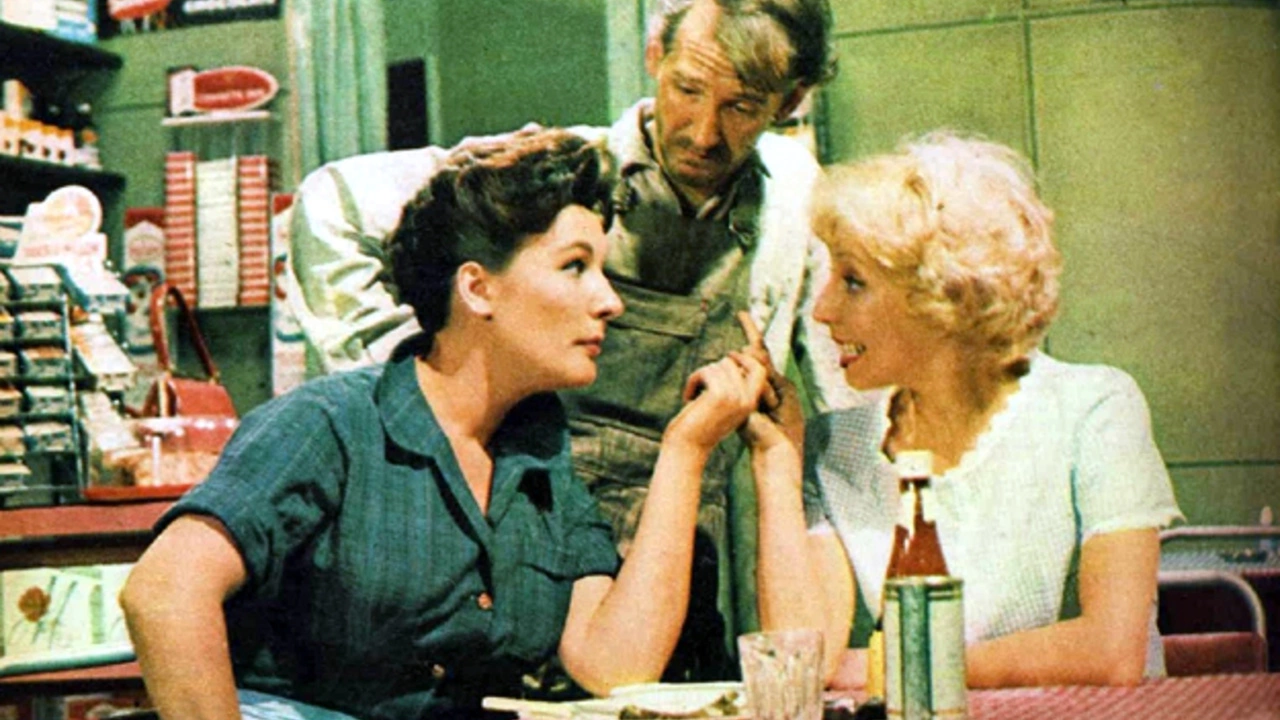This disturbing commentary is taken from a media release from the Lincoln Project, a virulent anti-Trump Republican-leaning group. In their own write:
Our job at The Lincoln Project – and the task for all of us in the pro-democracy movement – is to give President Biden air cover. Not split the vote. We know exactly who we have to target to reinforce the pro-democracy message. We did it in 2020 and we won 17 races with it in 2022.
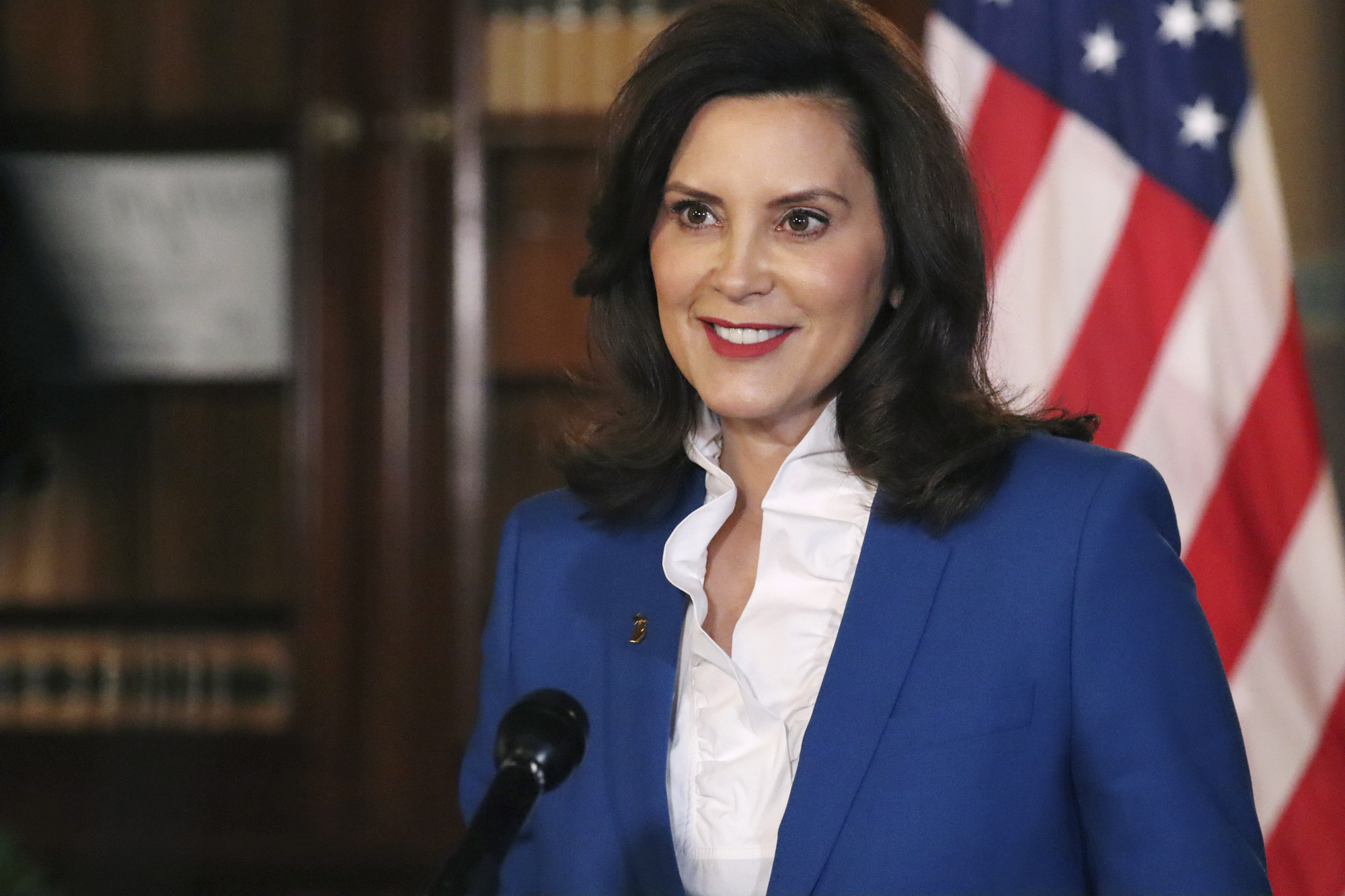
Below is a sample of the media releases with which the Lincoln Project is bombarding the potentially “swing” voters. To me, it is reality wrapped up in a scare campaign. Not sure that Biden can go the distance; he needs a better Vice-President. I’m a big fan of Gretchen Whitmer, the Governor of Michigan. She has withstood threats to her life by the Trump riff-raff and has both the intellectual capacity and toughness to be President. And she would come with the tag of being “under-rated”. Huge plus, especially when you are dealing with such an exploitive narcissist as Trump. By the way, where is Melania – and for that matter young Barron?
Fascinating and completely disturbing media release from the Lincoln Project:
Putin just listed 500 new targets for Russian sanctions. In short, it’s his enemies list, a collection of people who Putin wants the world to know he personally despises.
But here’s where it gets scary. Some of the names listed are at the top of Trump’s enemies list too.
- Letitia James, the New York state attorney general who is suing Trump for fraud.
- Brad Raffensperger, the Georgia Secretary of State and recipient of Trump’s “perfect call.”
- Michael Myrd, the Capitol Police officer who shot MAGA martyr Ashli Babbitt.
What do those people have to do with Russian foreign policy? They haven’t been vocal commentators on Russia’s invasion of Ukraine. They have no expertise or role in US-Russian relations.
The only conceivable explanation is that Putin is sending a loud and clear message to Trump: Your enemies are mine and I want to see you back in The White House in 2024.
Putin’s clear message got me thinking about the ad campaign we ran last year. It was a hard- hitting and critical message that reminded voters that the party of Reagan is now the party of Putin. That’s why MAGA Republicans are so desperate to cut off aid to Ukraine. It’s why Trump has openly praised the murderous dictator in the past. And that reason is why Putin and Trump share the same exact enemies list.
There is a dangerous connection between MAGA and Putin’s authoritarian regime. It truly can’t be overstated, and I can assure you that we’ll continue to work to remind voters of this fact.
Ceviche
Ceviche is one of my favourite fish dishes. I have always associated it with Brazil, but it is actually Peruvian.
I had my best ceviche one morning in Manaus, under what turned out to be strained circumstances for which I was to blame – ultimately. We had flown into Manaus from Sao Paulo late the night before. Manaus, located on the Amazon River approximately the same distance to the Peru border as it is to the mouth of the Amazon River, is the only place where there is bridge over the Amazon, linking it to Iranduba on the other side. In 2010, Brazil built a two-mile-long cable-stayed bridge connecting the two cities. Except that technically it does not cross the main course of the Amazon; it crosses the Rio Negro, the Amazon’s largest tributary.
Manaus is so isolated that there is only one viable road link, as told to us in 2019 – and that was to Venezuela about 3,000 kms away. There had been a road to Rhodonia, but that road was now impassable.
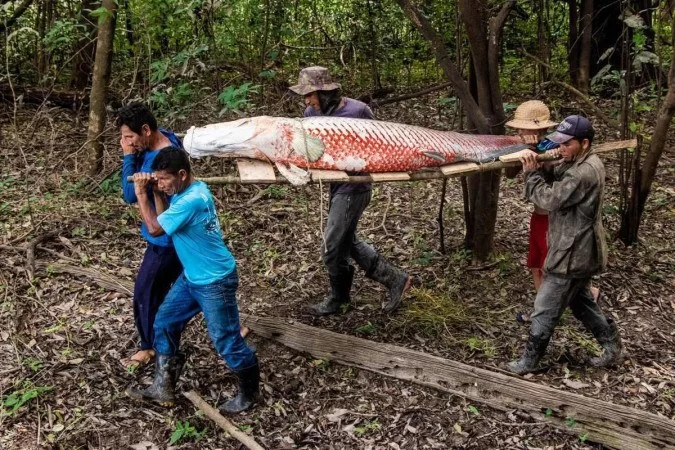
The fish which was used in the ceviche that morning was a white fish. I wasn’t familiar with the fish, but the marinade was very well balanced, subtle, yet where lime juice predominated. The fish was the pirarucu, the biggest freshwater fish in the world, a carnivorous lover of catfish and known to leap out of the water to take an unsuspecting small bird. The flesh is somewhat like cod to taste and, in each carcass, there is a great amount of flesh, given the fish is three metres long and 220 kilograms in weight. There was a stuffed specimen strung up in the market in Manaus – very impressive, just to press the point.
My memorable meetings with fish have always been associated with another matter completely extraneous to consumption. For instance, my most well remembered Dover sole meal, where the fish covered the whole plate, was served to me in a Cambridge hotel overlooking the Backs. While we were having this meal, Stephen Hawking was wheeled by.
In this case in Manaus, it was as I reached into my pocket searching for my wallet, to discover it was not there. Here in mid-morning having had this brunch of fish, I immediately froze. My room was not far away. I went back and searched – no sign. My companion then did her own search. The staff were notified; they came and turned the room upside down. Still no wallet. At this point I was staring down a difficult path, given we had to board the riverboat mid-afternoon.
I had brought a raft of papers to look over while I had the time. I turned over the pages and there, in the middle of the pages was the wallet. My companion and the hotel staff on the surface were very forgiving; underneath their collective mood would have been different.
The fish meal was very good, and I turned my face to the tropical garden. The tropical plants are not judgemental, good when one is totally embarrassed.
Narendra Modi
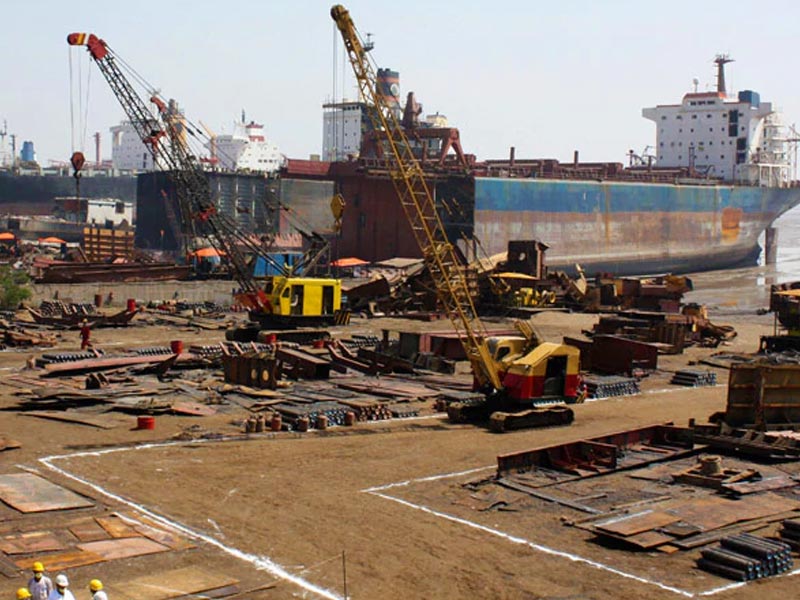

In 1978, Modi received a Bachelor of Arts degree in political science from the School of Open Learning (SOL) at the University of Delhi, graduating with a third class honour. Five years later, in 1983, he received a Master of Arts degree in political science from Gujarat University, graduating with a first class as an external distance learning student. There is a controversy surrounding his educational qualification. SOL said it did not have any data of students who received a BA degree in 1978. Jayantibhai Patel, a former political science professor of Gujarat University, claimed that the subjects listed in Modi’s MA degree were not offered by the university when Modi was studying there.Wikipedia
Probably even a couple of years ago, most Australians would not be able to name the Indian Prime Minister, but no more. Our Prime Minister has been complicit in raising Modi’s profile by accompanying him on the Modi vahana on that strange trip around the ground on the opening day of the fourth cricket Test in Ahmedabad. One could be bemused by the two countries entering into a defence pact. I cannot imagine Australian forces patrolling the India-Chinese border or assisting in the suppression of Kashmiri’s democratic right to vote with the potential of confrontation with Pakistan.
Albanese realises that although Indian prosperity is continually rising, creating potential markets for Australian trade, there are two areas where India has a visual effect on the everyday Australian. One is obviously cricket, where the Indian premier League (IPL) provides Australian cricketers and, by association, international cricket a financial lifeline. Cricket without India would have difficulty surviving in its current form. Secondly, more importantly for Albanese, is the Indian diaspora in Australia. There are about 750,000 Indians born in India who are living overwhelmingly (70 per cent) in Victoria and New South Wales. Over 17 per cent of those living in the seat of Parramatta, where Harris Park has become the signature suburb for the diaspora, are Indian born.
While Modi was travelling overseas, culminating in the visit to Australia, his party, Bharatiya Janata Party (BJP), was roundly beaten in the Karnataka State elections. As reported by The Economist, Modi addressed 19 public rallies and six road shows in Karnataka, which has had an average annual growth rate of eight per cent over the decade. In the end, this State of 68 million people was the only southern state under BJP control, and now it has lost heavily, retaining only 66 seats in an Assembly of 225 seats. The National Party had won an absolute majority; the Gandhis were back in power.
Modi had come up through Gujarat politics, a person born into one of the lower castes (the oil-burners), whereas the Congress Party Gandhis are brahmins, not necessarily popular among their fellow brahmins, but with that ultimate illusion of a “born-to-rule” caste.
Modi is a tiny figure, but his big head gives the impression of a bigger man. To govern such a sprawling diverse country for nearly a decade is remarkable. Many of his moves reflect an authoritarian personality, like so many of our leaders. Why do so many of them have to embellish their academic performance, as Modi has done. Perhaps, it just validates the thesis of social scientist Harold Lasswell that most politicians proceed from a basis of insecurity and low self-esteem. Therefore, without getting too much into the land of psycho-politics, tiny men in politics with an underlying inferiority complex can be a dangerous package.
Nevertheless, the smart money is transferring its interest from China to India. China is being left to the politicians and the public servants to salvage what they can from the selective bans on certain Australian produce. How that turns out will be carefully watched by those who have maintained a “watching brief” on mainland China. The Chinese fixation about Taiwan and the unpredictable gaoling of overseas nationals makes even the experienced China hands very wary.
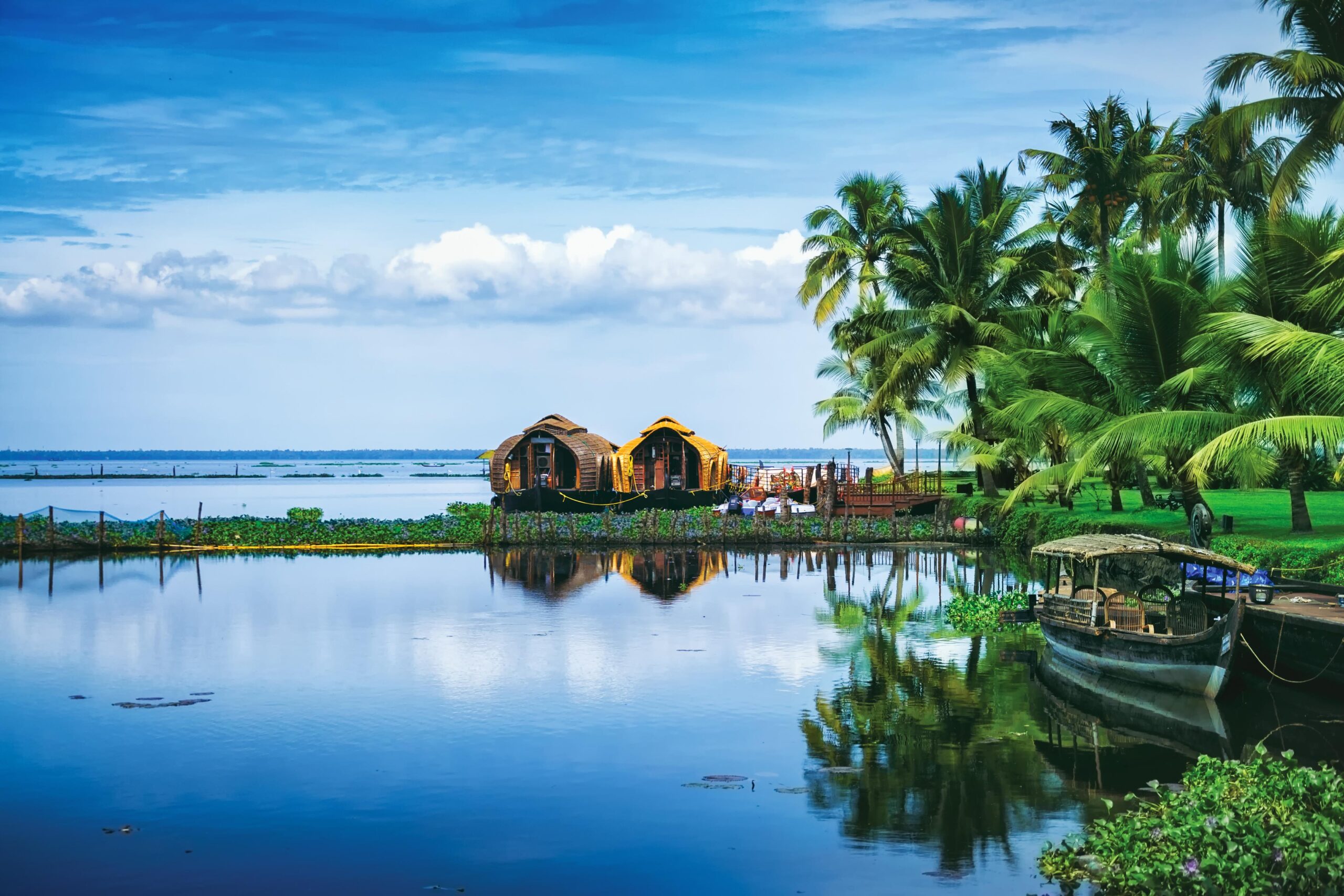
Although India is notoriously protectionist, with its potential market of over one billion, it is attractive. Try buying an imported bottle of wine – or spirits for that matter – in India and marvel at the cost. Currently, somewhat at odds with the calls to reduce fossil fuel exports, coal is the major Australian export, and the controversial entry of India into mining in Australia has been its response. At present with the flush of Modi-Albanese interactions, who knows where it will ultimately lead. One outcome for certain is that there will be more Indians migrating to Australia. The reverse? Well, I could live happily in Kerala for most of the year.
The Economist, having reported the loss of Karnataka by the BJP, says it may be a fillip for the once all-conquering Congress Party; yet the gains were stated as being at the expense of a third party, the Janata Dal (Secular). At the end of its report, The Economist stated: “there is nothing here to augur defeat for Mr Modi and his party in next year’s election.” In other words, Australia will have to live with Modi, who is 72 – young in this modern world of geriatric leaders.
As indicated above and elsewhere, I love India, especially the South. I first went to India when it was barely on the radar, with the prejudices and misconception of India on show. It was a time when there were fewer than 50,000 individuals born in India living in Australia. After the initial culture shock on arrival, India just continues to confound a Westerner like myself with its sheer beauty. You need not mention anything more than the Taj Mahal, but of course there is much more and there is enormous diversity. India imposes on the uninitiated not only by having so many people always in one’s personal space but also by the distinctive smell. This reflects not only the human factor but also inter alia the number of wandering cattle and the number of aromatic spices floating around in the urban atmosphere.
I have written about my fascination with India in my blog two years ago. It remains. It is just there is always a price in getting too close to a dictator, real and would be. It is the dilemma Australia faces, given the difficult relationship we will always have with China. Still, our country must build its resilience and no matter the country, we should be wary of alliances, which need to be thought through, especially when positioning ourselves in a bilateral Pact, a Triad (rhyming with raucous), a Quad or even rowing a Quinquereme in troubled South Pacific seas. It is not just an album of photo opportunities.
Hero of the Western World?
“I think the Liberals did unprecedented things in vilifying me, on things that were baseless, which they knew. First, we had that lowbrow Staley for years wandering around attacking me, saying I was one of the richest men in public life, that I was only in public life to enrich myself. I can only say of him: twisted in body, twisted in mind. And he was aided and abetted by Howard, who should have known better, who does know better …” Paul Keating in 2000 as reported in SMH.
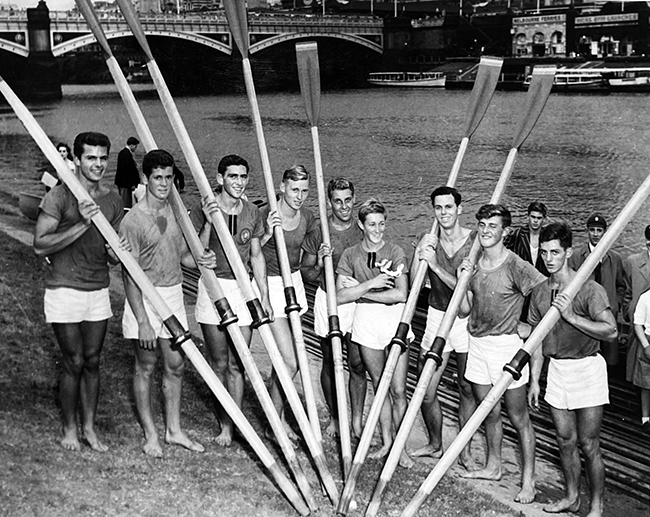 There is this photograph of the Melbourne Scotch College crew of 1957. No. 3 is Andrew Peacock; no. 6 is Anthony Staley and the Stroke was Neil Courtney. All are now dead. Peacock and Staley were rivals, even at school, vying to be the Captain of School. In the end it was Neil Courtney, also a gifted musician, who was chosen. This I knew because my father worked with his father, although I cannot recollect whether we ever met. I am not sure what he did later, apart from the fact that he died about six years ago and he rowed while at the University of Melbourne. Otherwise, the records readily available to me about him are silent.
There is this photograph of the Melbourne Scotch College crew of 1957. No. 3 is Andrew Peacock; no. 6 is Anthony Staley and the Stroke was Neil Courtney. All are now dead. Peacock and Staley were rivals, even at school, vying to be the Captain of School. In the end it was Neil Courtney, also a gifted musician, who was chosen. This I knew because my father worked with his father, although I cannot recollect whether we ever met. I am not sure what he did later, apart from the fact that he died about six years ago and he rowed while at the University of Melbourne. Otherwise, the records readily available to me about him are silent.
In my generation Scotch College in Melbourne produced a great number of prominent politicians, culminating in what the Italian call un uomo di sbalzi d’umore, Jeffrey Kennett as the Victorian Premier. Returning to the crew, which came second in the Head-of-the-River that year, Andrew Peacock went on to graduate in law, and never hid his political aspirations. Part of his inheritance (the born-to-rule complex) was gaining Menzies’ seat of Kooyong, having made a splash at the previous election by challenging the high-profile, left wing Jim Cairns.
Peacock lost. But his profile as the next generation leader was cemented. Peacock never received the opprobrium of being a young Australian, just too old to be included in the Vietnam draft lottery, not to serve despite his schoolboy militarism. The 1966 election cemented the Liberal Party, with Andrew Peacock having been elected in a byelection seven months before, his foot firmly planted on the political accelerator. He was well liked but, in the end, he just tired of the relentless back-stabbing antics and went elsewhere.
His rival, Anthony Staley, first came to my notice through some of my religious friends, when they mentioned this guy whose mission was to dedicate his life to being a pastor in the Presbyterian Church. He undertook a law degree at the University of Melbourne and followed me as the President of the Student Representative Council in 1961. Whereas Peacock’s first wife was the daughter of a Liberal Party politician, Staley’s first wife was the daughter of the University’s Vice-Chancellor – the first of five.
I saw Staley from time to time in the 1960s, especially when I started a Master of Arts in political science part-time at the University when he was lecturer there. I remember one day we were talking on a street in Melbourne when there was an anti-Vietnam demonstration being held. We were on the fringes and the crowd started moving towards us. I looked around. Staley was gone. I stayed. I was a bit surprised as I thought Staley had expressed great reservations about our involvement in the War.
The aim of becoming a pastor was soon tossed out of his career pathway. He was elected to Parliament at the 1970 Chisholm by-election, following the death of Wilfrid Kent Hughes. He was the Member for this electorate from 1970 to 1980 and was a low level Minister for the Capital Territory and then Minister for Post and Telecommunications until his retirement from Parliament. Thus, the two rowers of 1957 may have been reunited in the same Liberal Party boat but Staley never reached the Ministerial heights that Peacock achieved.
Staley clung to the leader, whoever that person was – but had an air of treachery, which was admired by his fellow fixers. It is a pity that being shady and duplicitous is so admired by some in the media claque. He switched from Snedden to Fraser in the period when the 1974 election intervened, and the robust Liberal Party stability of 1973 was replaced by the rise of the Party “bottom-feeders”.
Staley became the National President of the Liberal Party long after I had lost contact with him, but he apparently used his position to undermine Hewson, create the straw man Downer, before culminating his life’s work in the election of Howard who had been written off at the start of the decade. The Liberal Party Gepetto had triumphed no less!
There was one occasion in the 1990s when he and I were at some dinner where he was seated next to my wife, who had never met him before. She found his frank comments to her about his sexual exploits somewhat unusual – but then she just dismissed them as the pathetic ramblings of an ageing man with five wives on his curriculum vitae.
The problem with all these shenanigans, the stage for the ultimate progression of the Liberal Party was within the “ecology” of the Melbourne Club, where the ultimate strength of the Party lay and where they forgot about the branches. These provided the foot soldiers, ignored until they were mustered to help at election time. The cigar chomping Staley showed his contempt at one party conference by railroading a motion through to shore up the then Downer leadership. The problem is the branches in the face of a Party, whose seigneurs ignored them, enabled the rise of a different mob. This noblesse oblige just turned some party branch members into a rebellious mob, who still had the power to preselect candidates. This shift occurred during the Staley years, and how much was due to his actions others may wish to comment. The legacy of Staley with his expertise in palace intrigue may be his posthumous gift to the current leader, the hapless John Pessuto.
Mouse Whisper
I dislike the connotations of a plague of mice. This just goes against the grain.
John Wheats, our Poet Laureate, has written an ode. Wheats can never resist making rye comments.
Oats to a Threshing Churn Now Barley Charlie Spooning deepest darkest Congee So to forage in the Porridge makes one cruel eating the Gruel where one hits the hominy Grits or ends up with teeth and sorghums
